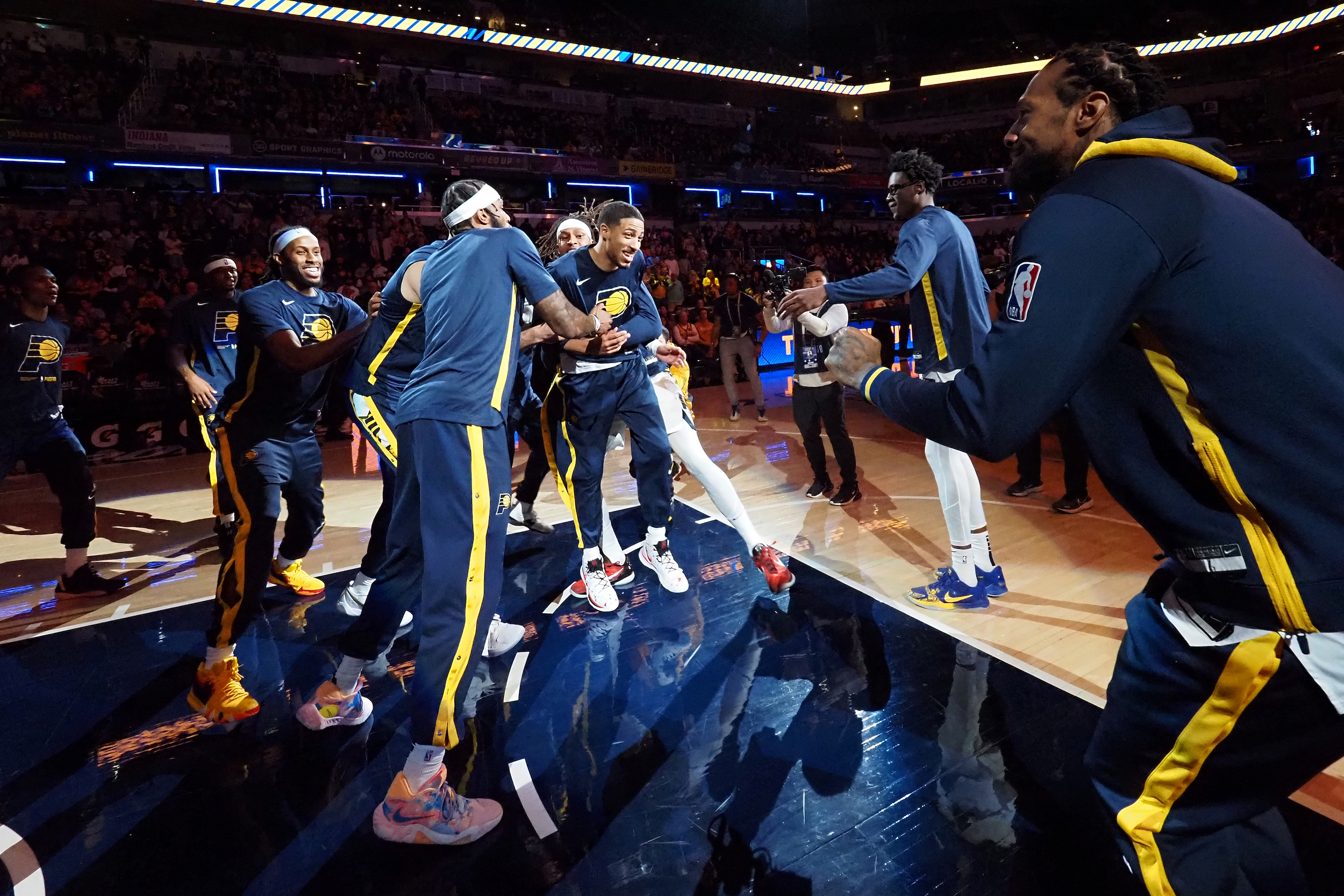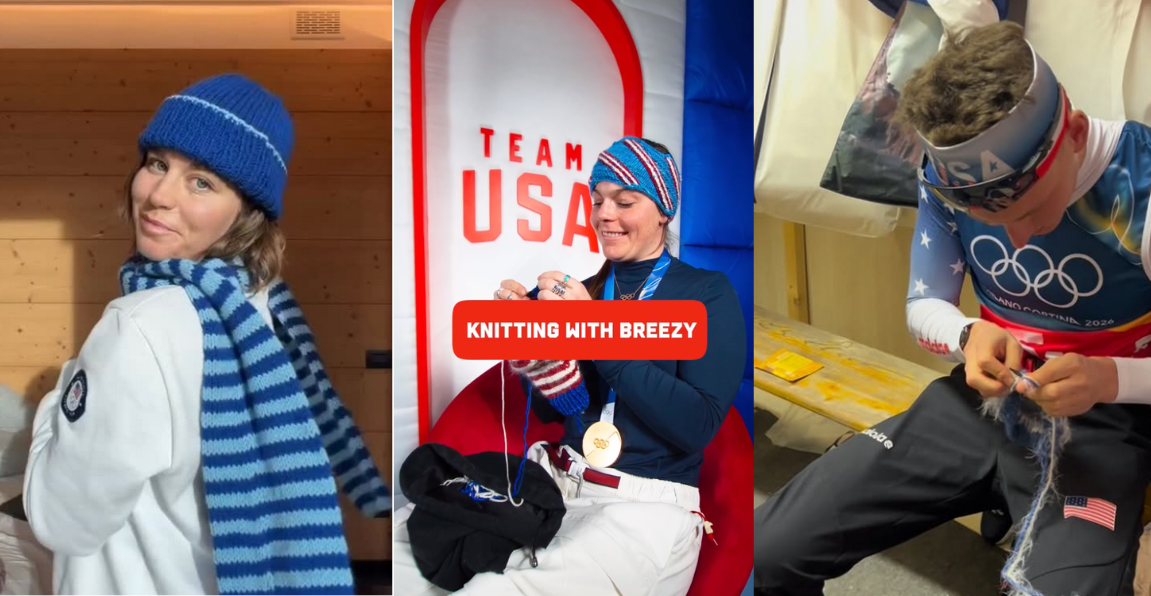The Indiana Pacers breezed past the Orlando Magic on Monday night, 123–102, to improve to 10–6 on the season. It was Indiana's fifth straight win and seventh in eight games. The Pacers have the league's 10th-best net rating and seventh best offense by points per possession; stat-nerd website Cleaning The Glass, which filters out garbage time, says the Pacers have the league's third-best defense over the past two weeks. This is a team that was expected to spend this season in the toilet, actively swimming deeper into the bowl whenever possible and then reaching up to cover itself with more and more putrid excreta, in order to position itself for draft lottery gold. But, instead of bricking for Vic, the Pacers have spent the early part of the season, uhh, swishing for, ahh, wins. They appear to be dangerously close to being good.
Here the savvy basketball-knower will say that 16 games is too small a sample size to determine true goodness, and they will point out that the Washington Wizards started last season with 11 wins in 16 games only to lose 42 of their remaining 66. We must remember here that the Wizards, for better or worse, were aiming for a playoff spot last season. They were not laying low for Paolo, or playing sorry for Jabari, or in the oubliette for Chet. When the Wizards won 11 of 16 games to start the 2021–22 regular season, it was an effort that rewarded—if only fleetingly and falsely—whole years of organizational strategy, all of it aimed at positioning the Wizards for a playoff run. To the great shame of their poor addled string-pullers, the Wizards have been trying to win this entire fucking time. It's disgusting and heartbreaking, and I do not want to talk about it anymore.
The Pacers are winning, but are they for sure trying to win? At last season's trade deadline they shipped away Domantas Sabonis, then a 25-year-old two-time all-star with two full years left on a very team-friendly contract. They traded away steady wing Justin Holiday, who'd started 40 of 49 games. They traded away Caris LeVert, who rules, for draft picks. The Pacers had spent a couple seasons thrashing around at the very bottom of the Eastern Conference playoff pack, beset by lousy injury luck and funky on-court chemistry and insanely bad coaching, and finally the difficult decision had been made to pull the plug. The moves gutted the team's core, and the Pacers lost 22 of their final 28 games, including 10 straight to close the season. The fire sale continued: In July, the Pacers traded away oft-injured lead guard Malcolm Brogdon, for what at the time looked like roster flotsam and a future draft pick of middling value. Indiana opened this season with the offense in the hands of two scrawny guards on rookie contracts, a wide but shallow pool of unproven wings, and just two proven, starting-grade veterans in their rotation, who as far as anyone else was concerned had value to the Pacers primarily as trade bait. The Pacers had the look of crud, like a team that would spend its winter testing out font sizes for the fit of WEMBANYAMA on the back of a crisp No. 1 home jersey, and dreaming of the bouncing of lottery balls on May 16.
Instead, they are winning. Here again the savvy basketball knower is piping up about the Pacers not having beaten anybody worth a damn. Fine, this is mostly true: Just two of Indiana's 10 wins have come against teams that currently have winning records, and one of those teams is [gulp] the Washington Wizards. A couple different trackers say the Pacers have played one of the league's easiest schedules; even their losses have for the most part come against ho-hum competition (including, ahem, the Washington Wizards). Even if the Pacers are less bad than everyone expected, they are almost certainly not top-10-net-rating, .625-win-percentage-level Good, no matter what our sacred Coefficient of Determination has to say about it. They swing out west for a seven-game road trip at the end of November, say these wised-up basketball skeptics: Check back in mid-December after the Pacers have had their guts scooped out by a succession of playoff teams, and then we'll sort out how "good" they are.
It's starting to feel like our savvy basketball knower might be deliberately missing the bigger picture. The Pacers do not need to be "good" or even anything like it in order to be facing a very difficult crossroads and much, much earlier in the season than just about any other team in basketball. They are falling far behind the NBA's really putrid teams—the 5–13 Orlando Magic, the 4–14 Charlotte Hornets, the 3–14 Houston Rockets, and the 3–15 Detroit Pistons—in the race for the bottom. With Cade Cunningham shelved indefinitely, the Pistons might struggle to win 20 games. The Rockets have a bottom-three offense and a bottom-three defense. Even the San Antonio Spurs, who started the season at a surprising 5–2, are cascading down the standings, and now have the league's worst net rating by a full point. If it feels like 75 percent of the league's teams are hovering around .500 or better, it's because they've all harvested wins against the bottom six teams, all of whom are insanely, breathtakingly bad. Most of this is due to the gravitational pull of Victor Wembanyama, and the rest of it is because the Lakers traded a functional roster for Russell Westbrook.
If the Pacers want to get into the Brick for Vic race, they are going to have to work very, very hard at it, and they are going to have to start that work very soon. A problem they will run into is that they might simply have too many useful guys to lose organically to teams that do not want to win, and to drop more than their fare share of games to teams in the NBA's middle tier. Myles Turner, when healthy, is the kind of player who is just going to win his minutes a lot of nights, by presenting matchup problems, by knowing where to stand, by taking away a lot of opponents' shots around the basket, and by raining hellfire from beyond the arc. Buddy Hield is a deeply flawed player, but his fearless perimeter shooting warps the floor and occasionally overwhelms opposing defenses. Swingmen like Jalen Smith and Oshae Brisset are coveted around the league because they can be plugged usefully into lineups with lots of different looks and succeed in the orbits of star players with vastly different strengths and vulnerabilities. T.J. McConnell, who fans of opposing teams will always consider to be a rat bastard, is an infuriating little pest who reliably flusters the bejeezus out of opposing backups. None of these Guys are Dudes, but a team that can throw four or more real-deal rotation-grade NBA players into all of its high-use lineups is never going to be bad, not without injuries or roster upheaval or Kyrie Irving to throw the situation into sustained periods of chaos.
The Pacers can use trades to actively gut their roster, if need be. Turner, who is having a career year in his age-26 season, is in the final year of his contract, and has done a little light campaigning for a swap to Los Angeles. Hield's contract is somewhat expensive for a league that never has more than a small handful of teams who aren't gridlocked by the salary cap and luxury tax, but he's a proven veteran with a useful skillset who could slide into a rotation job on any number of playoff hopefuls. A team with useful guys can usually find teams looking for useful guys, even if six or more NBA teams currently have less than zero interest in anyone who brings them anywhere closer to winning basketball games.
This brings us to Indiana's bird-in-hand source of optimism, the team's biggest roster strength, and the biggest challenge to any tanking ambitions. The Pacers might already have two legitimate budding stars in their backcourt: third-year point guard Tyrese Haliburton, and rookie shooting guard Bennedict Mathurin. Haliburton came over from the Kings in the Sabonis trade and just objectively whips insane amounts of ass. He's leading the NBA in assists per game, he's averaging a 20-and-10 double-double, he's producing 50–40–86 shooting splits, and he does the kinds of electric, highlight-for-highlight's-sake shit that juices up an arena, energizes teammates, and causes poor bloggers to mumble "Oh Christ" when he has the ball in transition against their bumbling home teams:
"OH LOOK AT THAT!"
— Indiana Pacers (@Pacers) October 29, 2022
Tyrese with the behind the back razzle-dazzle and Bennedict with the slam!👀🤯 pic.twitter.com/nplQ5EoRwz
Mathurin is the bigger surprise. Lots of rookies do cool shit; few put up 19 points in 27 minutes per game off the bench and virtually none of them carry their team's offense anywhere you'd want it to go for not-insignificant stretches of the first 16 games of their professional careers. Mathurin, all of 20 years old, leads all NBA reserves in points per game, on 61 percent true shooting. The Pacers are a little bit worse defensively with Mathurin on the floor, which you'd expect to be the case with just about any rookie guard, but aren't so much worse that they're losing his minutes. Mathurin is shooting 42 percent from beyond the arc on delicious volume, he's attacking the rim like a demon and getting to the line like a veteran, and like Haliburton he has a flair for the acrobatic. Playing alongside willing facilitators, like Haliburton and McConnell, allows Mathurin to stay in scorer mode, and it's a role he is frankly alarmingly good at filling. He's got more 30-point games this season than Bradley Beal, for chrissakes.
Haliburton and Mathurin have good on-court chemistry and make each other's jobs easier; Haliburton by collapsing the defense and delivering pinpoint transition and skip passes directly into Mathurin's shooting pocket, and Mathurin by zipping around off-ball, warping the defense, and doing respectable work as a secondary playmaker and facilitator. The hardest thing to find in the NBA is a healthy and coherent offensive identity; if the Pacers have that, in the Haliburton-Mathurin backcourt—or if through reps they might have it in reasonably short order—they could be most of the way to a foundation of sustained success. The baby Pacers want to be good, and possibly are, and Rick Carlisle's experience ensures they won't ever stagnate. It's just a little bit inconvenient that these leaps and this cohesion and all this pride and enthusiasm for good competitive basketball muck up what could be Indiana's best ever chance at landing a transformative talent.
What do you do, if you're in charge of the Pacers, and you've got a cool and efficient young point-guard putting up all-star numbers, a shockingly polished rookie scorer, a stable of useful veterans, and a head start on nosing your way into the playoff picture? Do you trade Turner and Hield for draft picks and salary space, aim for the bottom of the standings, and risk finding out that you can't realistically be bad enough to sink down to the Pistons Zone, not without shooting tranq darts at your future core? Or do you dare to believe you belong in the top half of your tough conference, and say damn the torpedoes? It's a real Hallows or Horcruxes situation for Indiana's braintrust and for an organization that hasn't embraced losing in its history and, as a result, hasn't won fewer than 30 games in a season since 1989. The Pacers picked the right moment in this era to start a teardown, when the potential rewards are as enticing as they've ever been. But maybe a consequence of never having accepted losing over all these years is not being very good at it.






